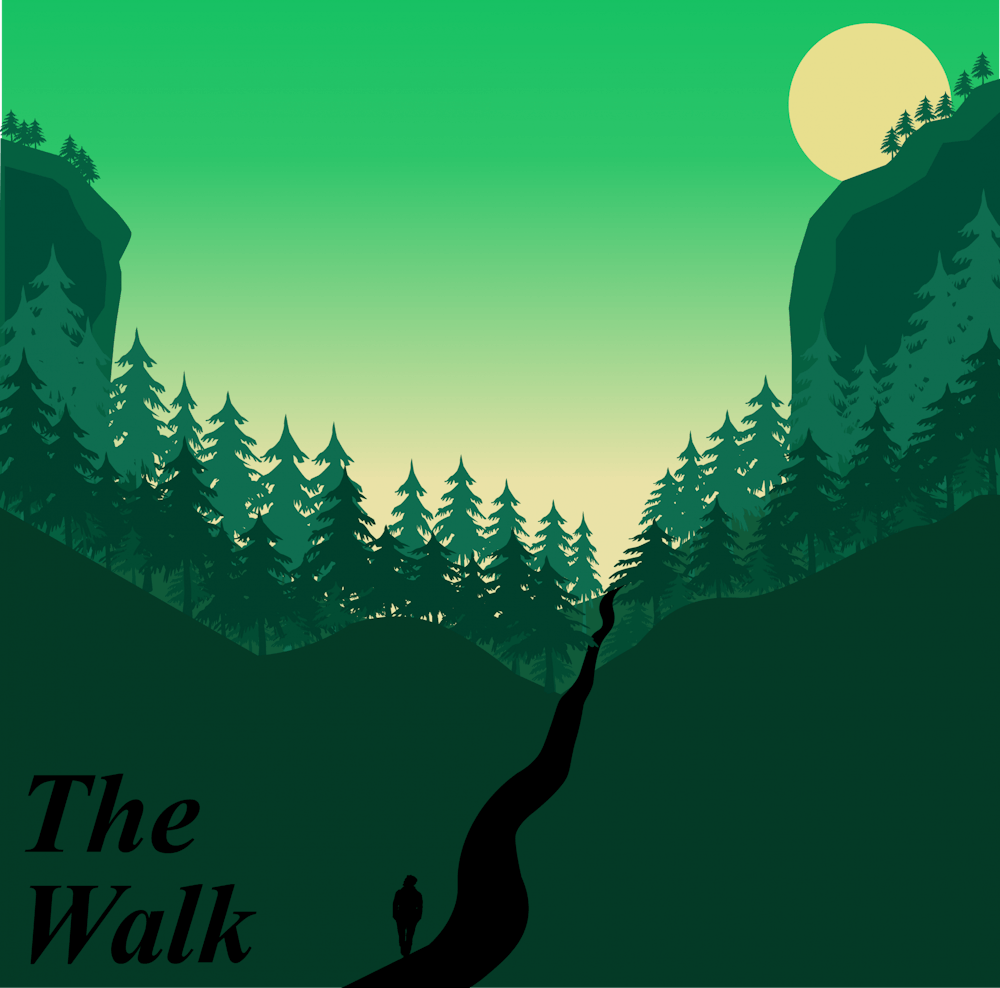Editor's Note: The views and opinions expressed in this article do not reflect those of The Collegian.
I must admit, I felt a swell of pride the other day when I visited Monument Avenue here in Richmond. I gazed at the statues of Jefferson Davis and Robert E. Lee, took in the view and reflected upon the words spray-painted across the faces of those giant stone edifices: “Black Lives Matter,” “How much more blood?” and “End White Supremacy,” among others.
“Amen to that,” I thought. “About time.” And I breathed a sigh of relief.
But I also felt a knot of worry bundle in my stomach. At first, this feeling was concern for the protesters in Richmond, the nation and around the world, who were all putting themselves at risk during the pandemic.
But then an even deeper knot of worry arose in my gut. I realized that, for all those years I had been disturbed by those symbols of white supremacy along Monument Avenue, with the removal of these statues, it could be that a reservoir of racial hatred grows deeper, stronger and even more entrenched across our nation. Our country has not always been a United States of America, but at times a Divided States of America, in which communities of color have long suffered disproportionately compared with the white majority.
One might argue that the mindset that empowered Derek Chauvin to be so cavalier in kneeling on George Floyd's neck for nearly nine minutes — Chauvin has since been charged with second-degree murder — is a mindset as old as the American experience. One might argue that it is this mindset that drove the exploitation of the first Africans brought to Virginia’s shores in 1619 before the foundation of our nation. It is a mindset that arguably led to the genocide of the First Nation, although some might prefer to call this “Manifest Destiny.” It is this mindset that led to the botched emancipation of 1865, giving birth to what Douglas Blackmon called “Slavery by Another Name,” including convict leasing and the rise of America’s prison industrial complex, which disproportionately affects African American men to this very day.
This isn’t the only mindset that defines America, of course. There are other mindsets, like the love and grace so many Americans have shown toward one another during the pandemic. And watching the protests, we have seen so many faces of the world unite in a deep desire for racial justice.
One tool that helps me think more deeply and critically about the nature of the American mind, and mindsets in general, is the practice of mindfulness. Mindfulness might be a tool to help create the conditions for deeper dialogues and reparations of our broken institutions.
There are many definitions of mindfulness, but one I appreciate from Shauna Shapiro is that mindfulness is “intentionally paying attention with kindness.” This starts with ourselves and continues with listening to others with our full presence. For the Zen-Buddhist teacher Thich Nhat Hanh: “Mindfulness is the energy of being aware and awake to the present moment. It is the continuous practice of touching life deeply in every moment of daily life. To be mindful is to be truly alive, present and at one with those around you and with what you are doing.”
We are at a pivotal moment in our nation’s evolution. With the right insights and compassion, our nation might take several steps forward in much-needed discussions about race, social justice and healing our dysfunctional institutions that exploit the most vulnerable among us.
For me, the practice of mindfulness has at times nourished my heart and spirit, especially in moments of great sorrow like the COVID-19 pandemic.
I sit for about 30 minutes a day, every morning, watching my breath, calming my body, watching my thoughts, and reflecting upon my actions and behavior and the consequences of my actions and behavior, as well as the actions and behavior of others. Then I close with thoughts of loving friendliness for myself, my loved ones, my acquaintances and those with whom I might disagree or simply dislike.
Enjoy what you're reading?
Signup for our newsletter
There’s also a lot more to meditation when I’m not sitting on the mat, going about my daily life. The practice of listening to others deeply is something I cherish — to witness another human being in their full complexity in this very moment, seeing, observing and attempting to understand and comprehend all their flaws, insecurities and vulnerabilities at that moment of conversation. Not to judge them, but to understand the logic of their thoughts, the passion of their hearts and the intention of their minds. I’ve often found that if the person to whom I’m listening feels heard, perhaps even understood, then they are typically much more open toward hearing my ideas and my point of view on things.
In today’s highly charged politicized environments in the wake of the killing of George Floyd, I’m encouraged that mindfulness might help us play a part in looking more deeply into the nature and reality of racism, how we got to this place in our nation’s history and how we might be able to move forward with greater insight, or wisdom, if we can hold a space for sustainable, inclusive healing going back to deeply felt wounds and intergenerational traumas since the dawn of the American experience. In much-needed discussions of race, the practice of mindfulness might help us hold that space with more inclusivity and grace.
At 4 p.m. on Friday, June 19, my colleagues Kathleen Skerrett, Roger Mancastroppa and I will co-facilitate the first part in a series of discussions focusing on the book, “Mindful of Race,” by Ruth King, an African American Buddhist nun who leads national and global coaching sessions on race, racism and mindfulness. We welcome all members from the UR community to participate.
“Mindful of Race” consists of three parts. Part One, “Understanding Habits of Harm-Diagnosis,” illuminates the distinctions between the lived experiences of white and non-white persons in the American Experience, reflecting upon the centuries-old legacy of white supremacy. Part Two, “Mindfulness — Heart Surgery,” explores ways to stay present with racial distress with mindfulness meditation and introduces insight meditation, or vipassana, to understand the roots of racism more fully. Part Three, “Cultivating a Culture of Care — Recovery,” introduces tools to have more inclusive, sustainable and healing discussions about race in our community as we develop resilient solutions to racism in our society.
My hope is that through mindfulness, we can clear our hearts a little bit more, feel safer in a collective atmosphere and take more risks and steps for more transformative social and legal justice.
Big ambitions, I know, but I’m an idealist.
To contribute to The Walk, email opinions and columns editor Conner Evans at opinions@thecollegianur.com.
Contact contributor Monti Datta at mdatta@richmond.edu.
Support independent student media
You can make a tax-deductible donation by clicking the button below, which takes you to our secure PayPal account. The page is set up to receive contributions in whatever amount you designate. We look forward to using the money we raise to further our mission of providing honest and accurate information to students, faculty, staff, alumni and others in the general public.
Donate Now



